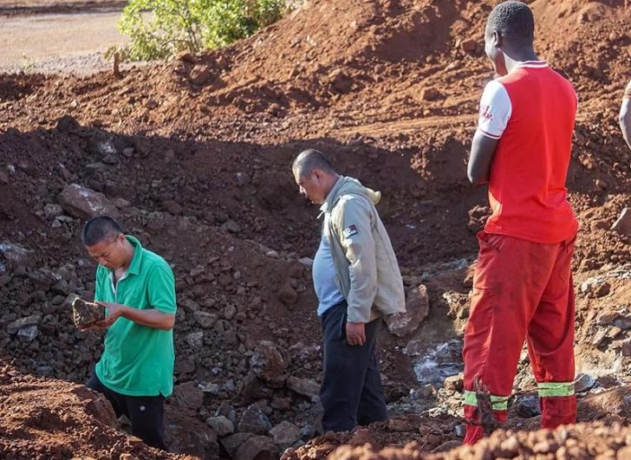
THE Government is keeping in place a special dispensation for importing fertiliser and cement to guarantee availability and affordability of the two critical commodities, a senior official has said.
To combat critical shortages and prevent price increases, the Government in November allowed imports of fertiliser and cement by traders and individuals until the end of 2023.
Amid renewed hopes for better-than-expected yields in agriculture, thanks to the rains, the Government’s decision to maintain the dispensation becomes timely.
The initial dry spell raised concerns about a potential decline in harvests for the 2023/2024 summer cropping season, but most parts of the country have been receiving rains since mid-December.
“We are not stopping fertiliser imports as the season looks much brighter than initially projected,” Permanent Secretary in the Ministry of Industry and Commerce Dr Thomas Wushe told The Sunday Mail Business last week.
He also said cement imports were continuing as the authorised amounts under previous permits haven not been exhausted.
“The permits haven’t been fully dispensed and imports are continuing,” added Dr Wushe.
“The cement supply situation is improving and we will continue to monitor local production in consultation with the local cement companies.”
Local firms are reportedly ramping up production.
Before the special dispensation, prices had soared by as much as 100 percent, which negatively impacted on several major infrastructure projects.
The price of cement had increased to around US$20 per 50kg bag, up from an average US$9.
This has had a negative impact on the construction sector, as property developers are now paying more for cement, which is a key input cost driver.
The sharp increase in cement prices had also been exacerbated by the expiry of import licences, which widened the supply gap.
The Government has been issuing import licences to cement producers to allow them to bridge the gap between local production and demand.
However, many of these licences
have now expired, which has led to a decline in imports and a further tightening of supply.
Imports have, however, helped tame runaway prices.
A 50kg bag of cement now costs around US$12.
Massive infrastructure development projects by both individuals and the Government have been driving demand for the commodity.
In the agriculture sector, extension of the special dispensation to import fertiliser comes at a time when the country is now projecting better-than-expected rains.
In July last year, the World Meteorological Organisation (WMO) warned that the El Niño weather phenomenon would lead to rising global temperatures and extreme weather conditions.
The UN weather agency estimated that there was a 90 percent probability of the El Niño event persisting through the second half of the year.
It was also expected to be of moderate strength.
According to the WMO, the phenomenon — a naturally occurring climate pattern linked to the warming of the ocean surface temperatures in the central and eastern Pacific Ocean — occurs after every two to seven years in episodes lasting nine to 12 months.
In Southern Africa, Zimbabwe, alongside Mozambique and Madagascar, were listed as highly exposed nations to the potent climate phenomenon.
Early forecasts predicted substantially drier conditions than usual in the October-December period.
However, the country has since seen moderate to below-normal rainfall.
Farmers who planted early and those whose crop survived the early season dry spell are benefitting from the recent rains and could have a better yield that initially forecast.
“Our maize crop is now safe . . . just three well-distributed downpours will give us a good harvest,” Ms Emarald Chitsamba, a smallholder farmer in Mutasa District, Manicaland province, said.
Zimbabwe Commercial Farmers Union president Dr Shadreck Makombe said the rains being received across the country have boosted prospects of a good harvest.
He encouraged farmers to take advantage of the current rains to plant short-season varieties and practice good agronomic practices.
“We encourage farmers to work with experts,” he said.
He also applauded the Government for liberalising fertiliser imports, saying the move helped farmers with free funds to import and stock for the next season.
Sunday Mail




